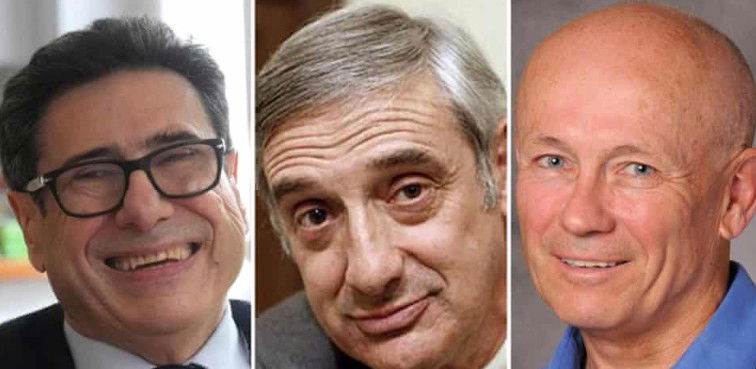America
Joel Mokyr, Philippe Aghion, and Peter Howitt have been honored with the 2025 Nobel Prize in Economics

Joel Mokyr, Philippe Aghion, and Peter Howitt have been honored with the 2025 Nobel Prize in Economics for their groundbreaking research. Their work uncovers how innovation and the relentless process of "creative destruction" serve as powerful engines of economic growth, transforming societies and elevating living standards
They won the Nobel Memorial Prize in economics on Monday for their research into the impact of innovation on economic growth and how new technologies replace older ones, a key financial concept known as “creative destruction”.
The winners represent contrasting but complementary approaches to economics. Mokyr is an economic historian who delved into long-term trends using historical sources, while Howitt and Aghion relied on mathematics to explain how creative destruction works.
Dutch-born Mokyr, 79, is from Northwestern University; Aghion, 69, from the Collège de France and the London School of Economics; and Canadian-born Howitt, 79, from Brown University.
Aghion, a French economist, warned that “dark clouds” were gathering amid increasing barriers to trade and openness, fuelled by Donald Trump’s trade wars. He also said innovation in green industries and blocking the rise of giant tech monopolies would be vital to stronger growth in the future.
Peter Howitt, MA‘69 (Economics), who was a faculty member at Western for nearly 25 years and remains an honorary professor, is among a trio of winners of the 2025 Sveriges Riksbank Prize in Economic Sciences in Memory of Alfred Nobel, often known as the Nobel Prize in Economics.
The winners were credited with better explaining and quantifying “creative destruction,” a key concept in economics that refers to the process in which beneficial innovations replace – and thus destroy – older technologies and businesses. The concept is usually associated with economist Joseph Schumpeter, who outlined it in his 1942 book “Capitalism, Socialism and Democracy.”
The Nobel committee said Mokyr “demonstrated that if innovations are to succeed one another in a self-generating process, we not only need to know that something works, but we also need to have scientific explanations for why.”
Established in the 1960s, several decades after the original Nobel prizes, it is technically known as the Sveriges Riksbank prize in economic sciences in memory of Alfred Nobel.



































